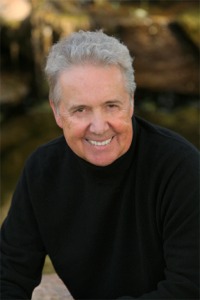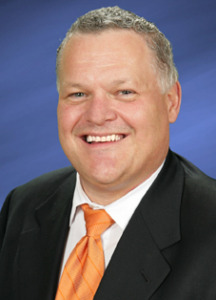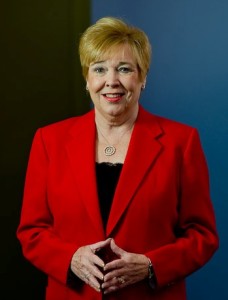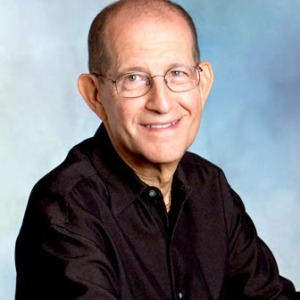
Note: You can find the introductory post of this series HERE, Part 1 of “The Experts Speak” HERE, and Part 2 of “The Experts Speak” HERE.
———————————————————–
In case this if your very first exposure to this series of blog posts, it was generated as the result of a question I was asked several weeks ago:
“If you could only offer only one piece of advice as I start a career in sales, what would that one thing be?”
I shared my response in the introductory post, and I have now shared the responses of these world-class sales experts:
Part 1: Jack Malcolm, Lynn Hidy, Dan Waldschmidt, Andy Rudin, and Todd Schnick.
Part 2: Steve Rosen, Mike Weinberg, Miles Austin, Leanne Hoagland-Smith, and Nancy Nardin.
This week, 5 more sales professionals provide a perspective on this very important question:
1. Townsend Wardlaw (Unique)
With tours of duty at AT&T, BDM, TRW Technology Services, Lucent, and Avaya, Townsend Wardlaw had experienced his share of large corporations, so he left a secure job and a hefty salary to start his own company. For six years, Three Value Logic delivered millions of cold calls and many more millions in revenue for clients. Since shutting the company down in 2009, Townsend has lived the (allegedly) glamorous, profitable and relaxing life of the sole proprietor. His boutique consultancy works with founders and CEO’s of companies earning between $1M and $10M to help them lead happier and more profitable lives.
- Website: www.townsendwardlaw.com
- Blog: http://townsendwardlaw.com/category/whiteboard-wednesday/
- LinkedIn: www.linkedin.com/in/townsendwardlaw
- Twitter: @townsendwardlaw
Occasionally, something happens early in one’s career that leaves a mark, and permanently changes the way they do things. For a salesperson, it might be losing a big sale – one that was already chalked up in the “win” column – that leads to the proverbial I’ll-never-make-that-mistake-again experience. Or it might be a huge “AHA!” moment – when something unexpectedly works for the very first time – and it becomes the gold standard for the future.
Who knows exactly when and how we experience tectonic shifts in our thinking?
I’m not sure why each of these sales jockeys chose the advice they gave; I didn’t inquire as to the background of their answers. Townsend, whom I have come to know as an innovator, someone who always finds ways to get things done, and a guy who is willing to share what he knows with anyone, chose a very interesting response to the question:
“Always schedule the next meeting! Never leave an interaction with a soft or vague follow-up step. Close for the next scheduled conversation or move on to the next prospect.”
Frankly, I admit that my first reaction was sort of dismissive. But Townsend is ridiculously good, so I stepped back to rethink it.
Then it hit me: if you’re always scheduling your next meeting and your follow-up steps are rock-solid, your pipeline is always full. Make no mistake; a full pipeline is an absolute necessity to success in selling. This is critically important: most salespeople don’t achieve their revenue objectives for a very simple reason – they don’t have enough opportunities in their pipeline.
The last part of his answer is just as important: If your current prospect won’t schedule your next meeting, find someone who will. Your time is too valuable to waste.
2. Richard (Dick) Ruff, Ph.D. (Discovery)
 Dick spent 30 years developing sales training for the Fortune 1000 – first at Huthwaite, then as co-founder of two sales training companies. Dick spent the first part of his sales training career with Neil Rackham, and then, in 2000, he and Janet Spirer founded Sales Momentum. In 2010, he created his current sales organization, Sales Horizons. Dick’s expertise ranges from targeted sales training efforts for launching new products to international sales training engagements with organizations like UPS, McKinsey, Apple, and Smith & Nephew. During his career Dick has authored numerous articles related to sales effectiveness, and he has co-authored three books: “Managing Major Sales,” “Parlez-Vous Business,” and “Getting Partnering Right.”
Dick spent 30 years developing sales training for the Fortune 1000 – first at Huthwaite, then as co-founder of two sales training companies. Dick spent the first part of his sales training career with Neil Rackham, and then, in 2000, he and Janet Spirer founded Sales Momentum. In 2010, he created his current sales organization, Sales Horizons. Dick’s expertise ranges from targeted sales training efforts for launching new products to international sales training engagements with organizations like UPS, McKinsey, Apple, and Smith & Nephew. During his career Dick has authored numerous articles related to sales effectiveness, and he has co-authored three books: “Managing Major Sales,” “Parlez-Vous Business,” and “Getting Partnering Right.”
- Website: www.saleshorizons.com
- Blog: www.salestrainingconnection.com
- LinkedIn: www.linkedin.com/in/richardruff
- Twitter: @saleshorizons
I am particularly fascinated by the perspectives of older sales professionals. In part, I suspect, because I am older, but mostly because of the changes imposed on the sales profession over the past 20 years by rapid advances in technology. It seems ludicrous today to think that my primary sales tools once consisted of a Daytimer, a phone book, and an Excel spreadsheet.
Still, the basics of sales success never really change, as Dick notes in his reply to the question:
“My advice is to recognize that we are living in a time of compressed history. What worked yesterday is a bad predictor of what will work in the future. So a lot of ‘the-good-old-days, it-has-always-worked’ type of advice isn’t so good. Rely on really understanding the client – better than anyone else. Know how they buy. Understand how they define value. Make sure you know what they expect from salespeople in today’s environment.”
While Dick’s answer focuses on discovery – understanding the client and the ways in which each specific client defines value – notice his reference to adaptability: “what worked yesterday” may not work today.
The reality is that great salespeople consistently demonstrate the ability to adapt to changes in the sales environment, which are omnipresent. If you fail to change and upgrade your game, your competitors will quickly help you find a new career.
At the same time, some things never change; some things will always be critical to achieving a successful sales career. Like knowing your customers and understanding their expectations.
3. Kelley Robertson (Discovery)
 Kelley Robertson began his sales career in a men’s clothing store in the mid-seventies. He worked in a managerial capacity for over a decade, hiring and training almost 1000 employees for approximately 16 new restaurants. In 1995, went to work for Sony of Canada to provide sales training for the retail division. The sales training programs and sales training resources he developed are recognized around the world within the Sony organization and have been used by Sony Latin America and Sony Mexico. Kelley created his private sales training practice in 2002, The Robertson Training Group. He specializes in helping businesses increase their sales, develop better negotiating skills, coach and motivate their employees, create powerful work teams and deliver outstanding customer service. Kelley is the author of two sales training books, “Stop, Ask & Listen-Proven Sales Techniques to Turn Browsers into Buyers” and “The Secrets of Power Selling.”
Kelley Robertson began his sales career in a men’s clothing store in the mid-seventies. He worked in a managerial capacity for over a decade, hiring and training almost 1000 employees for approximately 16 new restaurants. In 1995, went to work for Sony of Canada to provide sales training for the retail division. The sales training programs and sales training resources he developed are recognized around the world within the Sony organization and have been used by Sony Latin America and Sony Mexico. Kelley created his private sales training practice in 2002, The Robertson Training Group. He specializes in helping businesses increase their sales, develop better negotiating skills, coach and motivate their employees, create powerful work teams and deliver outstanding customer service. Kelley is the author of two sales training books, “Stop, Ask & Listen-Proven Sales Techniques to Turn Browsers into Buyers” and “The Secrets of Power Selling.”
- Website: www.fearless-selling.ca
- Blog: www.fearless-selling.ca/blog
- LinkedIn: www.linkedin.com/in/kelleyrobertson
- Twitter: @kel_robertson
While there are wide a variety of skills any successful salesperson must develop, the one that is most visible to customers is the face-to-face encounter. Whether it is simply a meet-and-greet opportunity, or a full-fledged sales presentation, credibility and trust can be gained or lost while in front of the customer.
Kelley gets right to the heart of the matter in his response:
“Resist the temptation to launch into a sales pitch until you have thoroughly assessed your prospect’s situation. It sounds simple, but most sales people only scratch the surface when conducting a discovery conversation. Learn to ask tough, deep, thought provoking questions that make your prospect or customer sit back and really think about their situation. Develop the ability to become comfortable asking probing questions that uncover the prospect’s pain AND the implications of that pain or problem.”
Kelley’s formula for selling success is to assess, discover, probe, and uncover.
Then, armed with an understanding of the prospect’s pain and the implications of that pain, proceed with the solution presentation.
Kelley implies that “deep, thought provoking” questions are learned, and I agree wholeheartedly. Yet, how often do salespeople sit down in a face-to-face conversation and conduct an interrogation, using rapid-fire questions that elicit data and information but provide little in the way of real understanding?
It’s not the person with the best information that wins; it’s the person with the best understanding of that information that wins.
4. Barbara Weaver Smith, Ph.D. (Mindset)
 Barbara Weaver Smith is now in her third career. She was first a professor and college dean, and then became President of a statewide non-profit agency. Her eclectic background has provided 17 years of experience in leading diverse groups of stakeholders and she raised much more than $100 million in gifts, grants, and earned income. In 1994, she took the entrepreneurial plunge to become Founder & CEO of The Whale Hunters, a company whose mission is to lead small and mid-sized companies to make more money through bigger sales to bigger customers. She is the co-author of “Whale Hunting: How to Land Big Sales and Transform Your Company.”
Barbara Weaver Smith is now in her third career. She was first a professor and college dean, and then became President of a statewide non-profit agency. Her eclectic background has provided 17 years of experience in leading diverse groups of stakeholders and she raised much more than $100 million in gifts, grants, and earned income. In 1994, she took the entrepreneurial plunge to become Founder & CEO of The Whale Hunters, a company whose mission is to lead small and mid-sized companies to make more money through bigger sales to bigger customers. She is the co-author of “Whale Hunting: How to Land Big Sales and Transform Your Company.”
- Website: www.thewhalehunters.com
- Blog: www. http://thewhalehunters.com/blog
- LinkedIn: www.linkedin.com/in/barbaraweaversmith
- Twitter: @bweaversmith @thewhalehunters
It is not unusual to see a former salesperson turn to some type of teaching as a second career; however, it is rare to see a former teacher (and college dean!) turn to selling as a second career! I would have expected Barbara to have a different thought process as it relates to success in a sales career, and she did not disappoint:
“‘Career’ is a great keyword. Your career is your life’s work, even if it morphs along your journey. Approach your career with the same purpose, and experience it with the same joy, that you find in your life’s other gifts – family, friends, talents, community.”
Like Dick Ruff, Barbara can reference an extensive panorama of experiences when considering a response to the question – three careers worth, to be exact. And, just like Dick, you see the element of adaptability in her answer when she speaks of a journey that “morphs” or changes.
I suspect this is not a coincidence. As salespeople gain experience, they rapidly find that the sales profession is considerably demanding in terms of adaptability, flexibility, and responsiveness. Salespeople are challenged almost daily to react to challenges that materialize out of the blue – from customers, from the evolution of technology, and from wholesale changes in the marketplace.
Barbara’s answer to success reminds me of Steven Covey’s concept of “begin with the end in mind.” Success is an “approach.” It requires purpose; a purpose that finds harmony with the other things in your life.
How many salespeople are truly joyful in their careers?
5. Robert Terson (Mindset)
 Robert Terson is the author of “Selling Fearlessly: A Master Salesman’s Secrets For the One-Call-Close Salesperson.” After a highly successful 40-year career of selling advertising to small businesspeople – 38 years of which he was the owner of the company – Bob finally retired in January 2010. Now, he writes, speaks, and works hard to help others succeed. In his own words, he is using his retirement “to give back for a lifetime of blessings.” In his second career, Bob has received numerous accolades for his work, which he studiously avoids publicizing. Among those awards is recognition of his sales blog by Top Sales World as one of the Internet’s “Top 50 Sales & Marketing Blogs.”
Robert Terson is the author of “Selling Fearlessly: A Master Salesman’s Secrets For the One-Call-Close Salesperson.” After a highly successful 40-year career of selling advertising to small businesspeople – 38 years of which he was the owner of the company – Bob finally retired in January 2010. Now, he writes, speaks, and works hard to help others succeed. In his own words, he is using his retirement “to give back for a lifetime of blessings.” In his second career, Bob has received numerous accolades for his work, which he studiously avoids publicizing. Among those awards is recognition of his sales blog by Top Sales World as one of the Internet’s “Top 50 Sales & Marketing Blogs.”
Website: www.sellingfearlessly.com
Blog: www.sellingfearlessly.com
LinkedIn: www.linkedin.com/in/robertterson
Twitter: @robertterson
In a relatively short time period, Bob has come to know hundreds of key people in the sales industry. Part of that is attributable to the ease in which social media allow people to become aware of others, but most of it is attributable to Bob’s dogged determination to build relationships with people.
Those that know Bob well universally use the same words to describe him: giving, thoughtful, and generous. He is, in fact, from all outward appearances, a very gentle, laid back man, right up to the point where you hit one of his hot buttons. Then, all the lights come on, the generators fire up, and you catch a glimpse of the passion that made Bob a force to be reckoned within his industry.
I have come to know Bob pretty well, and I would have suspected that I could nail his answer to the question, but I swung and missed completely. Here is his response:
1. Never take “no” personally!
2. Meet your prospect as his equal, not his subservient lackey. Equality begets respect.
No one who has spent more than a few weeks calling on customers has failed to hear the word “no” on multiple occasions. Add up all the times a one-call salesperson like Bob has heard that word, and I’m convinced the sheer weight of it all would be enough to send most people looking for a nice, boring job.
You just can’t afford to have thin skin in selling. It certainly doesn’t mean you have to like it, or even accept it easily, but you can’t let it get to your head or your career will end quickly. It reminds me of a quote from the venerable Vince Lombardi: “Show me a good loser, and I’ll show you a loser.”
Attitude is everything.
But, it is the second part of Bob’s answer that really illustrates the need to adopt a particular mindset in selling. Salespeople are often prone to viewing themselves as unequal to their customers. Most likely this view is developed either from the stigma that surrounds certain aspects of selling or from the fact that salespeople are dependent (in their own view of themselves) upon their customers.
Dependency breeds inequality, and inequality breeds desperation. And nothing kills sales quicker than desperation.
If you want to see Bob get fired up, just ask him about it.
Kelly Riggs is a business performance coach and founder of the Business LockerRoom. A former national Salesperson of the Year and serial entrepreneur, Kelly is a recognized thought leader in the areas of sales, management leadership, and strategic planning. He serves clients ranging from small, privately held companies to Fortune 500 firms. Kelly has written two books: “1-on-1 Management™: What Every Great Manager Knows That You Don’t” and “Quit Whining and Start SELLING! A Step-by-Step Guide to a Hall of Fame Career in Sales.”